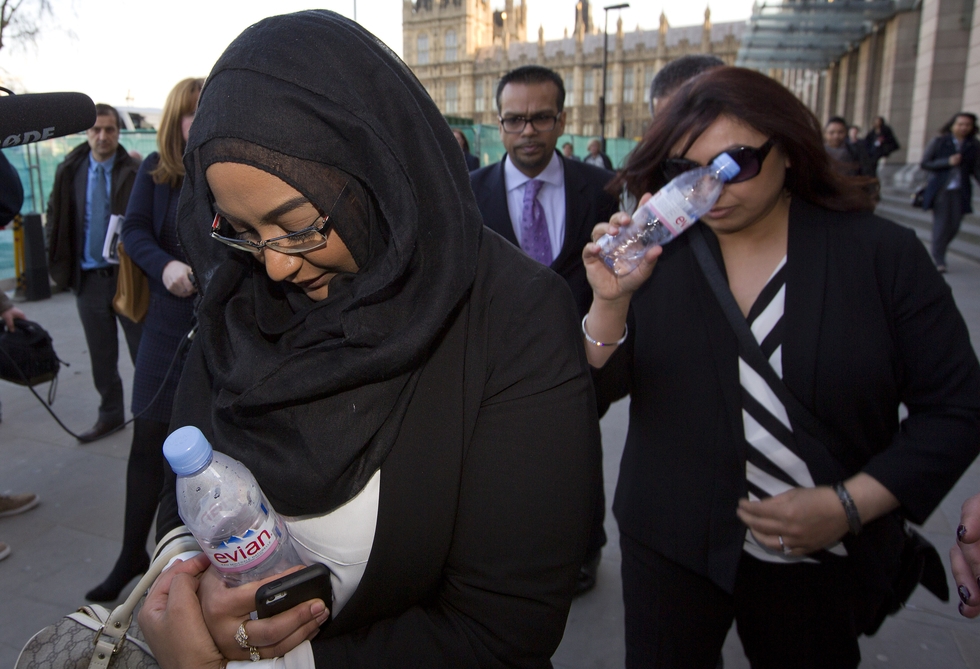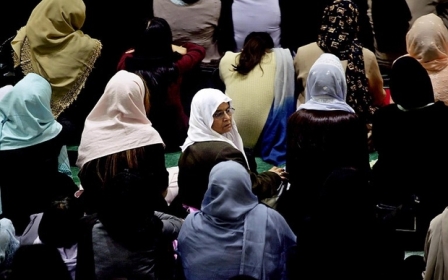British MPs call for rebrand of 'toxic' Prevent strategy

The British government should review and rebrand its Prevent counter-extremism strategy and engage more widely with Muslim communities to address “toxic” levels of mistrust, a parliamentary committee recommended on Thursday.
The report by the Home Affairs select committee also called for an independent review of the Prevent "duty," requiring teachers and other public sector workers to monitor and report people they believe may be at risk of being drawn into terrorism.
Other measures proposed in the report include recruiting video game programmers to produce content to challenge online extremism, and establishing a “high-tech, state of the art round-the-clock” hub bringing together representatives of the security services and technology companies to wage “cyber-war” on the Islamic State (IS) group and other “terrorist and extremist organisations”.
The report was also scathing of existing measures being taken by social media companies, including Twitter, Facebook and YouTube, which it said were “consciously failing” to prevent their platforms being used to promote terrorism and killings.
“We are engaged in a war for hearts and minds in the fight against terrorism. The modern front line is the internet. Its forums, message boards and social media platforms are the lifeblood of Daesh [an Arabic name for IS] and other terrorist groups for their recruitment and financing and the spread of ideology,” said Keith Vaz, the Labour MP who chairs the committee.
“The government must develop an effective counter-narrative to the slick and effective propaganda machine being run by Daesh. We should utilise the brightest talent of the world’s creative industries to counter terrorist propaganda with even more sophisticated anti-radicalising material. In the face of this new threat, we need a terrestrial star wars.”
The review of government counter-extremism policy comes amid growing calls for Prevent to be abolished or reformed, as complaints that it is discriminatory against Muslims rise, as do concerns that the Prevent duty is stifling freedom of expression in classrooms and universities.
The extension of Prevent last year into schools, nurseries and other childcare settings, has also produced a surge in the number of referrals to the Channel counter-radicalisation programme of children deemed to be vulnerable to extremism.
But the report concluded that the duty had placed a responsibility on public bodies which they were finding hard to fulfil because of a lack of appropriate training and a “lack of clarity” about what was required. It said an independent body should be set up to review training and report on “the advantages and disadvantages of placing the Prevent duty on a statutory footing”.
More broadly, the committee called for Prevent to be rebranded “Engage” and urged the government to involve more Muslim organisations, including those with which it did not agree, in a review of the strategy.
It warned that government plans for a new counter-extremism bill targeting so-called “non-violent extremism” were unfocused and risked being ineffective or counter-productive.
“The communities most affected by Prevent regard it as being toxic. Successive governments have failed to heed repeated calls for a review of Prevent. Prevent needs to become a more transparent, stakeholder-led, inclusive strategy, and be renamed Engage,” said Vaz.
It also advised the government to be more transparent about "publicising its engagement activities," following reports by MEE on links between the Home Office's Research, Communications and Information Unit (RICU) and ostensibly grassroots counter-extremism organisations.
Citing “lamentable” levels of support for the families of individuals who had travelled to Syria and Iraq to join IS, the report suggested a new counselling service should be created and family and friends of those “sucked into extremism” consulted as part of efforts to develop a more sophisticated understanding of the process of radicalisation.
Its publication comes days after reports that one of three teenage schoolgirls from East London who absconded to IS-controlled Syria in 2014 and 2015 had been killed in an air strike. Relatives and teachers of the girls were among those who gave evidence to the committee.
And it called on the government to consider a deradicalisation scheme for returning foreign fighters along the lines of that pioneered in Denmark. The call comes with about 800 UK-linked fighters believed to have travelled to Syria and Iraq, of whom about half are thought to have returned, and a 35 percent increase in terrorism-related arrests between 2010 and 2015.
The Muslim Council of Britain welcomed the report's findings and supported the committee's calls for a review of Prevent, which forms one strand within the government's broader counter-terrorism strategy.
In a statement, it said "the focus of the [Prevent] strategy should be around building a real partnership between community groups and the state. For too long, successive governments have failed to work in partnership with a wide cross section of the Muslim community, as equal stakeholders in the fight against terrorism."
The MCB added: "We strongly encourage and have encouraged reporting of those who have broken the law or are on course to committing a terror attack. We will support initiatives that enable this fairly and with justice. Moreover, last year, we began a national conversation amongst grassroots Muslim communities to explore what our response to the threat of terrorism should be."
But Ibrahim Mohamoud, a spokesperson for Cage, a counter-terrorism-focused human rights group, told MEE that the Select Committee was playing the blame game by emphasising the need for Muslims to take ownership of terrorist acts, instead of critically assessing whether the government's counter-terrorism measures reduced or increased the threat.
“The Select Committee claims there have been too many counter-terrorism laws yet they welcome the proposed Counter Terrorism and Safeguarding Bill. It is hard to understand how further legislation piled onto already existing failing legislation will rectify the situation,” Mohamoud told MEE.
He also said: “Those at the receiving end of Prevent, as well several organisations and high profile figures have called for the Prevent duty to be scrapped outright. A simple re-brand of a fundamentally flawed policy will do no good.”
The latest call for Prevent to be reviewed follows calls for the strategy to be reformed or scrapped by David Anderson, the government's independent reviewer of terrorist legislation, and the main opposition Labour Party, as well as civil society organisations, community groups and international human rights watchdogs.
Rights Watch (UK), a human rights campaigning organisation which last month said that Prevent was violating the human rights of children, also welcomed calls for Prevent to be reviewed, but said there were still fundamental flaws with the strategy - namely its definition of 'extremism,' and the indicators it used to determine it.
In its statement the organisation said: "Prevent relies on an overly broad definition of extremism, and ambiguous and unsubstantiated indicators of extremism. All this, and the documented impact the strategy is having on the rights of Muslim communities, including children, means that the strategy in its current form must be abandoned, not rebranded.”
Prevent officers have so far not been entirely successful in their efforts to wage cyber-war. Last week MEE revealed how police in Northamptonshire clumsily photoshopped an image of celebrity couple Tom Hiddleston and Taylor Swift and flouted copyright laws to promote their work.
New MEE newsletter: Jerusalem Dispatch
Sign up to get the latest insights and analysis on Israel-Palestine, alongside Turkey Unpacked and other MEE newsletters
Middle East Eye delivers independent and unrivalled coverage and analysis of the Middle East, North Africa and beyond. To learn more about republishing this content and the associated fees, please fill out this form. More about MEE can be found here.




